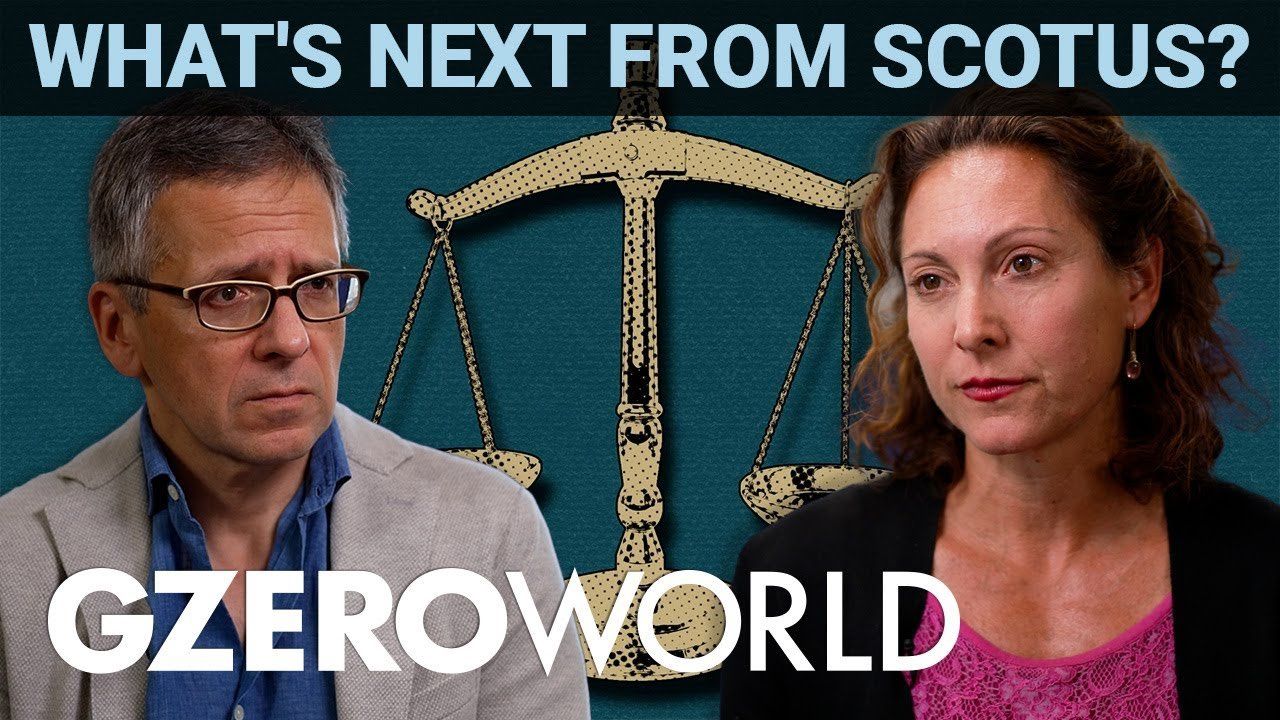
Who watches the watchmen? And who oversees the US Supreme Court? As SCOTUS, the highest court in the US, gears up to issue some blockbuster rulings this summer, ethical concerns swirl around its members, and its public support is at an all-time low.
It’s been one year since SCOTUS struck down Roe v. Wade, eliminating the constitutional right to abortion after 50 years of precedent. In the months following the decision, the conservative supermajority quickly moved US law away from the political center. Multiple controversies erupted surrounding Justice Clarence Thomas, and public opinion balked at a blanket refusal to address questions about the justices’ ethical standard.
Has the Supreme Court become overly politicized? Can public faith be restored in a deeply partisan America? And what major rulings are still to come this session? Ian Bremmer talks with Yale Law School legal expert, New York Times Magazine columnist and co-host of the Slate’s Political Gabfest podcast, Emily Bazelon.
Tune into GZERO World with Ian Bremmer on public television stations nationwide. Check local listings.
- 3 key Supreme Court decisions expected in June 2023 ›
- Senators want ethics rules for SCOTUS ›
- What We’re Watching: SCOTUS mulling student debt relief, Blinken visiting Central Asia, Biden's partial TikTok ban, Petro’s post-honeymoon phase ›
- Podcast: An active US Supreme Court overturns "settled law" on abortion. What's next? ›
- Ian Explains: The US Supreme Court's history of political influence - GZERO Media ›